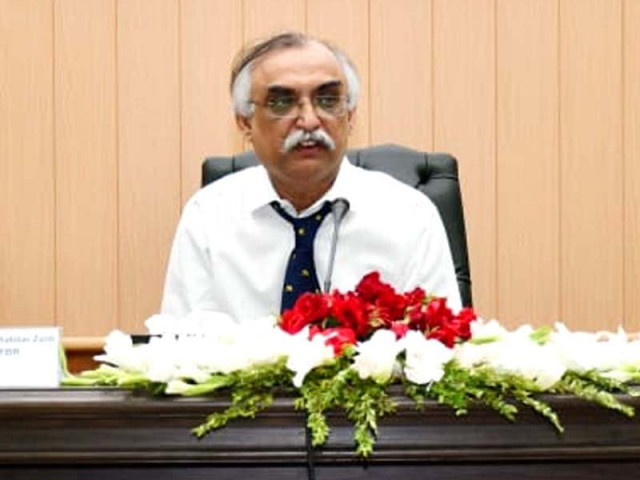Talks between FBR and traders fail again
Traders refuse to become part of formal economy, which may jeopardise govt plan

FBR Chairman Shabbar Zaidi. PHOTO: FILE
The latest round of talks was held on Thursday under the supervision of a senior official of the National Defense University, according to the sources in the FBR and traders union.
During the talks, a scuffle broke between the two groups of the traders, which further complicated the matter. All this happened in the presence of the representative, according to the sources.
The traders threatened to use their street power if the government did not show flexibility, which according to them had brought even the then military dictator General (R) Pervaiz Musharraf to his knees. General Musharraf had started a country-wide registration campaign in early 2000 but had to retreat after shutter down strike.
Through budget 2019-20, the government made it legally binding for the industrialists to seek the Computerized National Identity Card (CNIC) from the wholesalers and distributors on sales of over Rs50,000. The move pitched the traders and small shopkeepers against the government.
The traders neither want to get income tax registration nor the sales tax registration - the two measures that are very critical for documentation of the economy.
FBR Chairman Shabbar Zaidi last month constituted a joint committee of the FBR, tax experts and the traders representative to resolve the issue at the earliest and delayed enforcement of CNIC condition on purchase of over Rs50,000 till September 30.
The share of the wholesale and retail services in total national output is 18% but their share in tax collection is only 0.88%, said a senior FBR official.
He said that the manufacturers were also understating their cost of sales by showing them as margins of the distributors.
The only solution to this problem is to register all the retailers, wholesale dealers and distributors in the income tax and sale tax regimes.
There is deadlock with the FBR on the issues of provision of the CINC copy and getting the sales tax registration number, according to a joint statement issued by Ajmal Baloch, president Anjman-e-Tajran Pakistan and Naeem Mir, secretary general of the association.
The NDU was also keen to resolve the issue and its official participated in the talks on Thursday, said Baloch while talking to The Express Tribune. He said that a few days ago, Lieutenant General (R) Afzal Muzafar also met with the representatives of the trade bodies in Lahore to resolve the issue.
The FBR chairman had taken an important step when he decided to make it legally binding for the manufacturers, traders and buyers to disclose their identities at the time of making purchases of over Rs50,000.
The CNIC condition is also binding for the consumers, as it will help the FBR track the real income of the people, Zaidi told The Express Tribune last week.
Last month, the FBR unveiled a draft of simplified income tax regime for small shopkeepers. But the retailers had their reservations against the draft too, as they did not want to be a part of the formal regime without guarantees.
The FBR has defined a small shopkeeper as an individual who carries out business at a premises having covered area of less than 300 square feet but does not include a shopkeeper if he is engaged as a jeweller, wholesaler, warehouse owner, real estate agent, builder and developer, doctor, lawyer, chartered accountant or any other category specified by the FBR.
But the traders have demanded that there shall be no condition of covered area and the electricity connection and everyone dealing in sales of goods and services should be treated as small traders.
The FBR proposed that the small shopkeeper will pay only 2% of turnover as tax rate or fixed from Rs20,000 to Rs40,000 income tax, whichever is higher. The fixed tax rate will depend on the size and location of the shop
Against 2% tax, the traders have demanded only 0.1% turnover tax. During Thursday's meeting, the FBR indicated to bring the turnover tax rate to 1%, said Baloch in his written statement.
The officials said that the Naeem Mir Group was ready to accept the CNIC condition but the other group was not ready to accept it, which led to scuffle between both the groups. At one point, the FBR's member taxpayers' audit and convener of the traders' committee, Nausheen Amjad Javed, had to leave the venue due to abusive language that the traders' groups used against each other.
The deadlock persisted and no new date for next round of talks was decided during the meeting.
Published in The Express Tribune, September 7th, 2019.
Like Business on Facebook, follow @TribuneBiz on Twitter to stay informed and join in the conversation.



















COMMENTS
Comments are moderated and generally will be posted if they are on-topic and not abusive.
For more information, please see our Comments FAQ